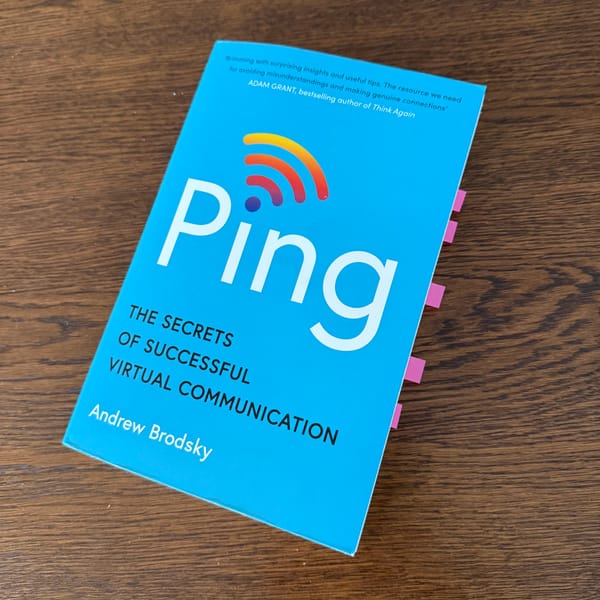In 1:1's, I often support people that are trying to influence a peer or stakeholder to get something done. Influencing is a misunderstood skill. I've captured some of my thoughts on how influencing skills help your career, and how you can develop them.
Influencing is a competency that plays a crucial role in achieving professional success. It's the capacity to have an effect on the behaviour or actions of someone or something. It's about persuading others to align with your ideas, without resorting to authority.
Influence is the currency of effective leadership and collaboration in any workplace setting.
So, why is developing this skill important? Here are a few key benefits that effective influencing can bring to your career:
- Facilitating Collaboration. Influence enables you to bring people together and foster collaboration. When you can effectively influence, you can navigate conflict and drive consensus.
- Driving Change. Change is constant, and is the lifeblood of modern organisations. Having influence allows you to mobilise support for change projects or strategies.
- Building Relationships. Influence tied to your ability to build and nurture relationships. By earning trust and respect, you can leverage connections to achieve shared goals. Influence will also help you cultivate a positive work environment.
- Career Advancement. Individuals who possess influence often find themselves in positions of leadership and authority. Cultivating influence can open doors to new opportunities.
Now that we understand the importance of influence, here are eight practical ways to cultivate it in the workplace:
- Lead by Example. Actions speak louder than words. Show integrity, professionalism, and dedication. As embody these values, people are more likely to follow.
- Listen Actively. Effective communication is a cornerstone of influence. Practice active listening and seek to understand other perspectives before expressing your own. Show empathy, ask clarifying questions, and acknowledge the validity of different viewpoints. My guide to active listening is a great starting point for developing your Active Listening skills.
- Build Credibility. Be an expert in your field by continuously building knowledge and skills. Share your insights and expertise openly. This will position you as a trusted resource and thought leader.
- Cultivate Relationships. Invest time and effort in building genuine connections with your colleagues and stakeholders. Get to know them on a personal level. Lead with gratitude and show appreciation for their contributions. This will help you strengthen your connections.
- Adapt to Different Styles. Recognise that different individuals have unique communication and decision-making styles. Flexibility is a key to influencing. Tailor your approach to suit the style and needs of those you're seeking to influence. Consider studying Situational Leadership as a way to build this flexibility.
- Highlight Mutual Benefits. When presenting ideas or proposals, emphasise the mutual benefits for all parties. Build suggestions on shared objectives, and articulate how they can contribute to shared success.
- Seek Feedback and Input. Invite feedback from others and incorporate their ideas and suggestions. This fosters a sense of collaboration and enhances your credibility as an inclusive leader.
- Exercise Patience. Influencing others can be a gradual process that requires patience and persistence. Stay committed to your goals, even in the face of resistance or setbacks. Building influence is a journey, not a destination.
Influence is a powerful tool that can enhance your career and drive change within your organisation.
By leveraging these strategies, you can cultivate influence in the workplace. This will help you become a more effective leader and collaborator.
Remember, true influence stems from authenticity, empathy, and genuine desire to create value for others.







Member discussion